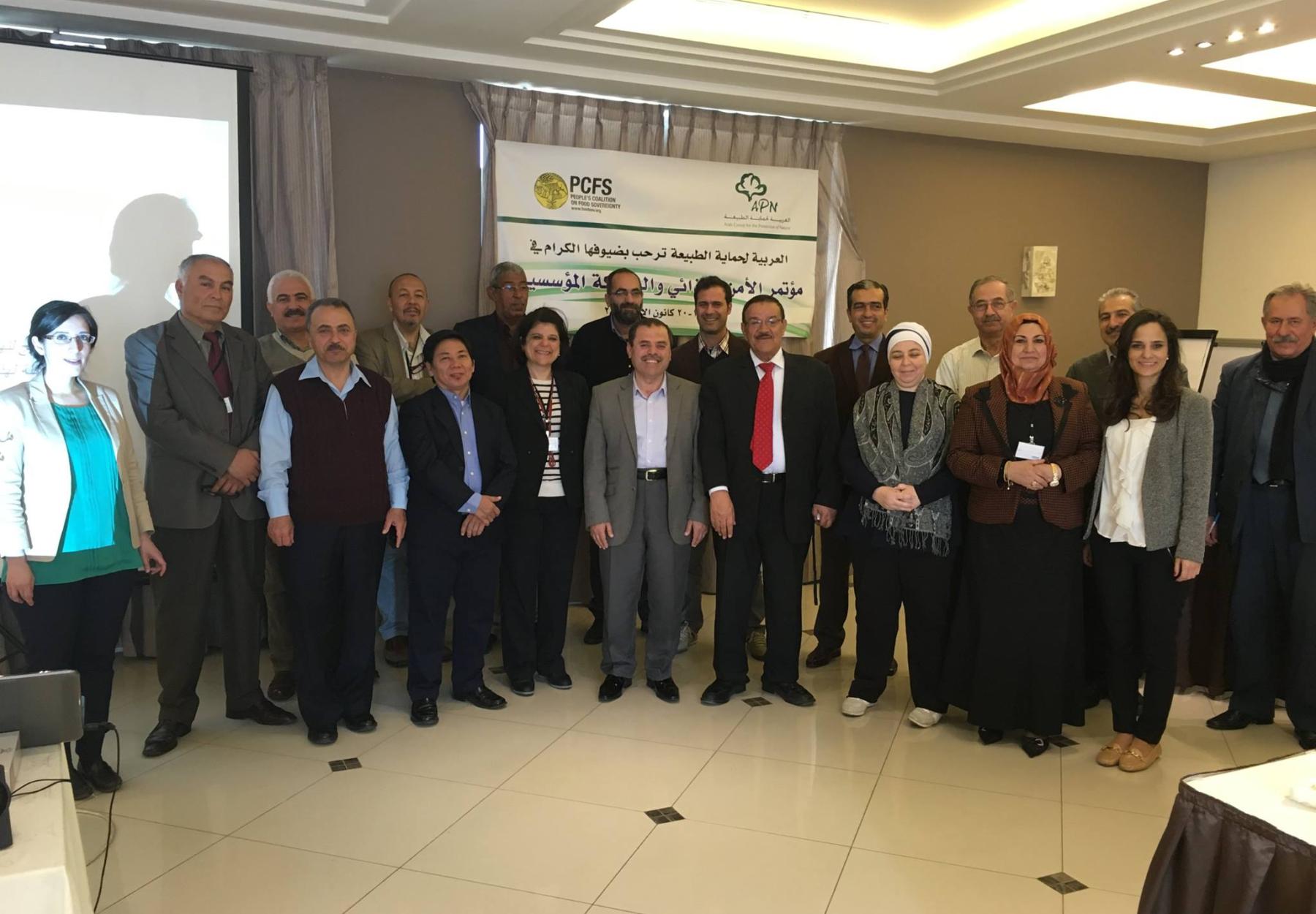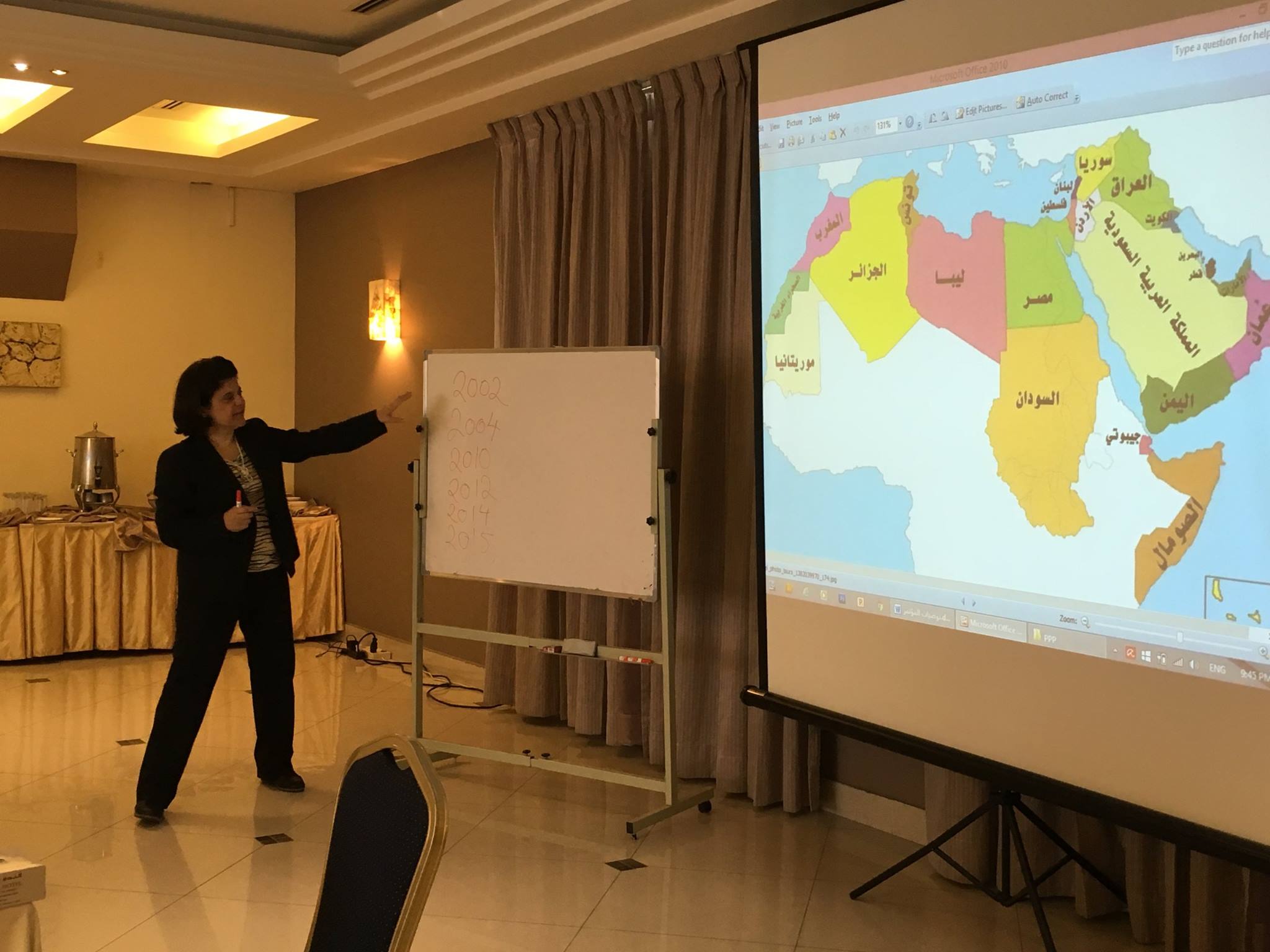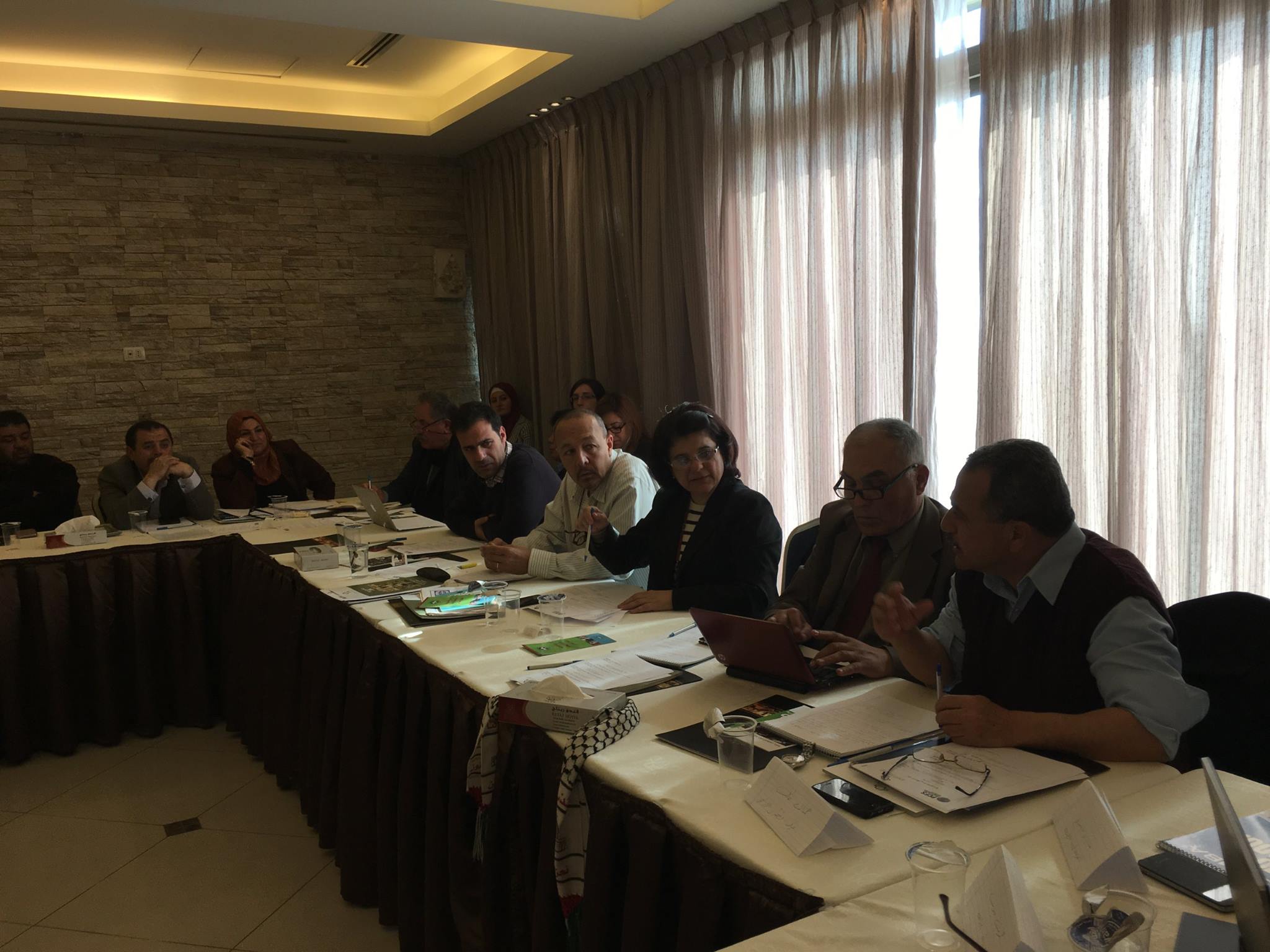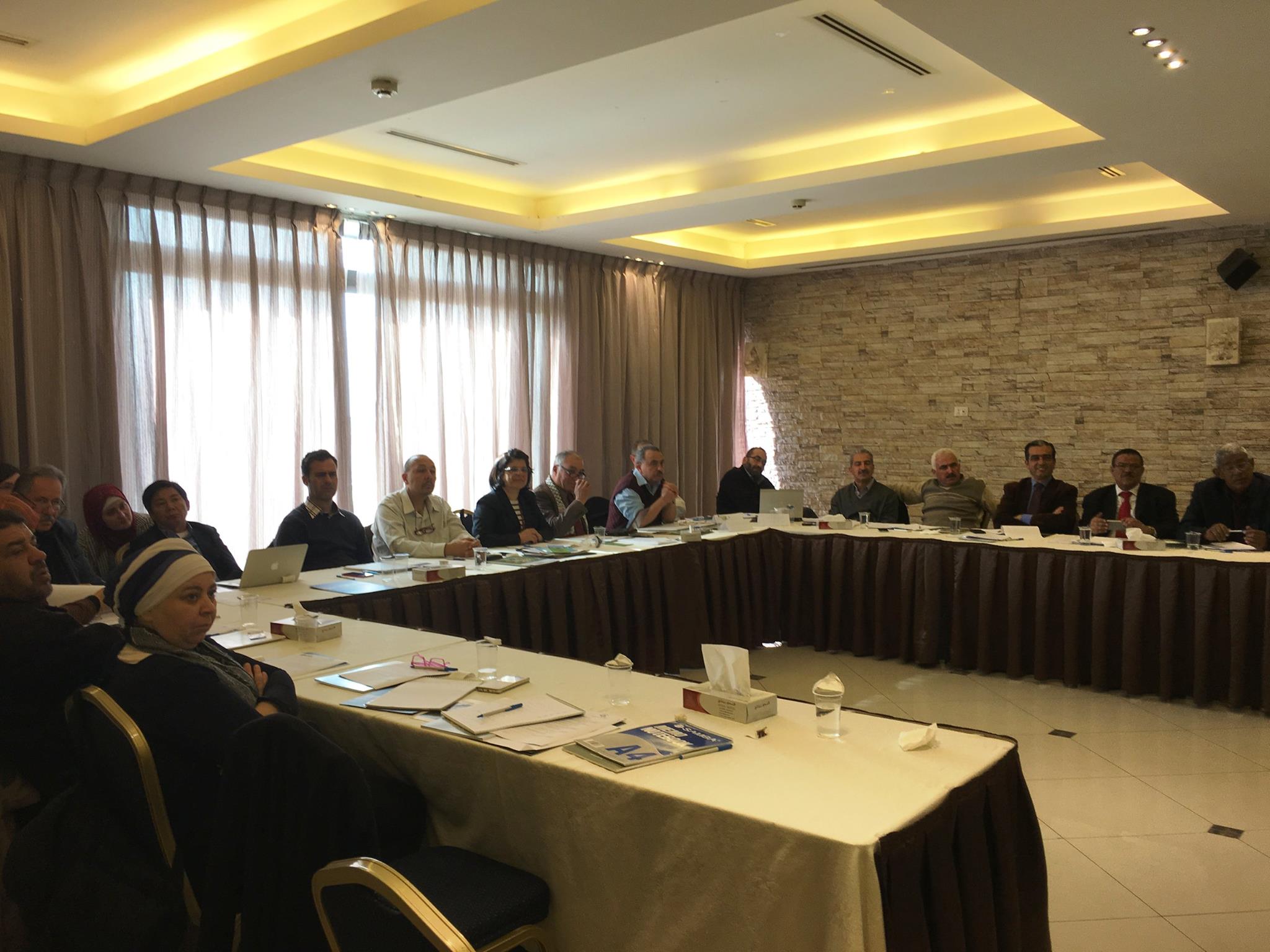
Representatives from eight food production groups from Arab countries took part in a conference organized on Dec.19-20, 2015 in Amman on food security and public-private partnership. Experts and specialists from Jordan, Iraq, Palestine, Morocco, Tunisia, Algeria, Yemen, and Lebanon participated in the conference. It was also attended by the Secretariat of the People’s Coalition on Food Sovereignty, of which APN is a member in its coordination committee.
APN President Razan Zuayter said in a speech that the conference aimed at discussing the public-private partnership approach which international institutions are pushing for in developing countries. A further objective was to enhance the concept of food sovereignty particularly in the Arab region and facilitate cooperation and networking between the regional civil societies and southern countries. 
Participants emphasized that the partnership approaches promoted by international institutions such as the World Bank and the International Monetary Fund are widely criticized by global civil society because of the negative impacts of such partnerships including increased private sector control over resources such as lands, water and seeds.
In comments during the conference sessions, Jordanian parliament member Abdul Karim al-Doghmi noted that agriculture in the country is totally neglected and that regulations expanding construction at the expense of agricultural lands are a crime against food sovereignty. In order to assess the benefits of such partnerships, he said, there is a need to differentiate between involvement of the large multi-national companies and that of local small producers. He added that proposed development projects and enhancing local food security should be carefully studied instead of increasing profits of recipient companies.Participants underlined the importance of engaging civil society in shaping public-private partnerships to ensure progress towards achieving countries’ sovereignty over food by supporting local sustainable production and agricultural processing, value added products and protection of markets against dumping.
They agreed on the need to provide support to farmers’ cooperatives that engage with small farmers in the agricultural value chain and strengthen socio-economic protection.On the issue of networking, participants were in agreement that Arab civil society should be able to identify and ally with organizations involved in food security and agriculture on joint causes. It is important, they also agreed, to pinpoint regional priorities ignored at international forums, advocate for them and increase the participation of representatives of marginalized societies living under occupation in such global forums.

